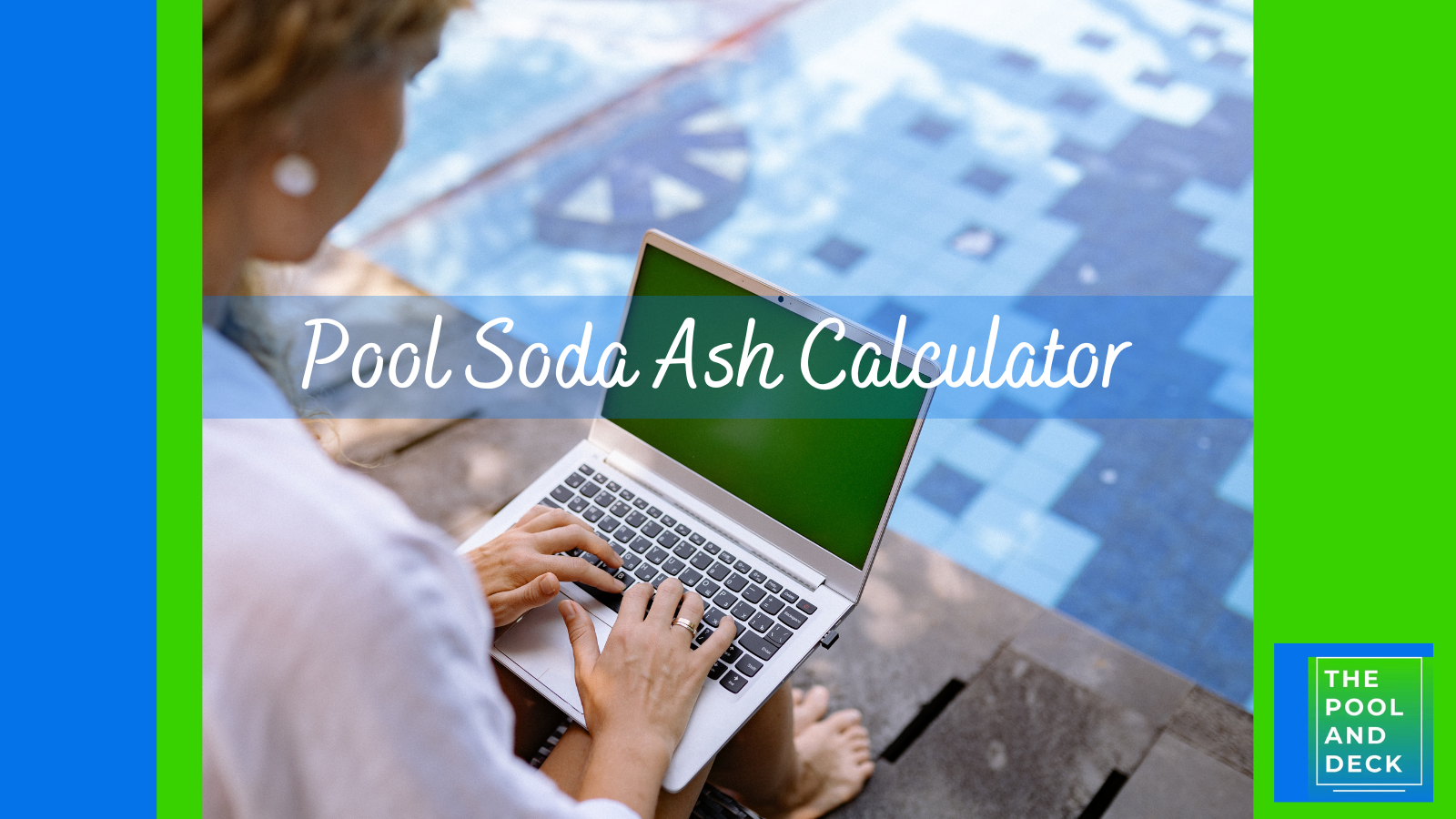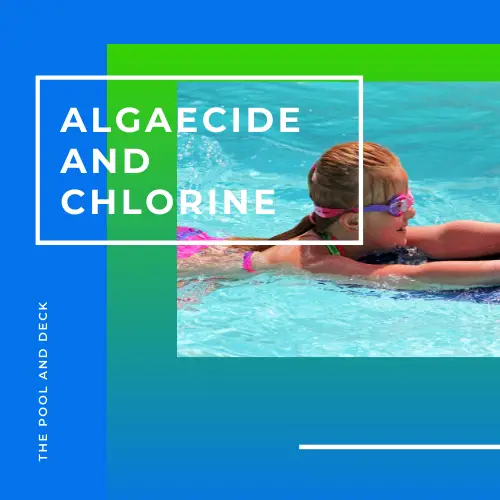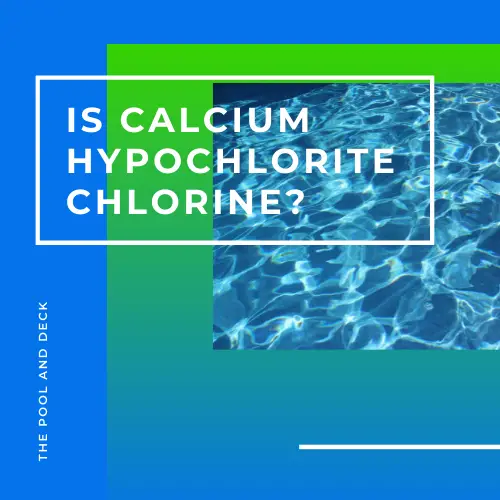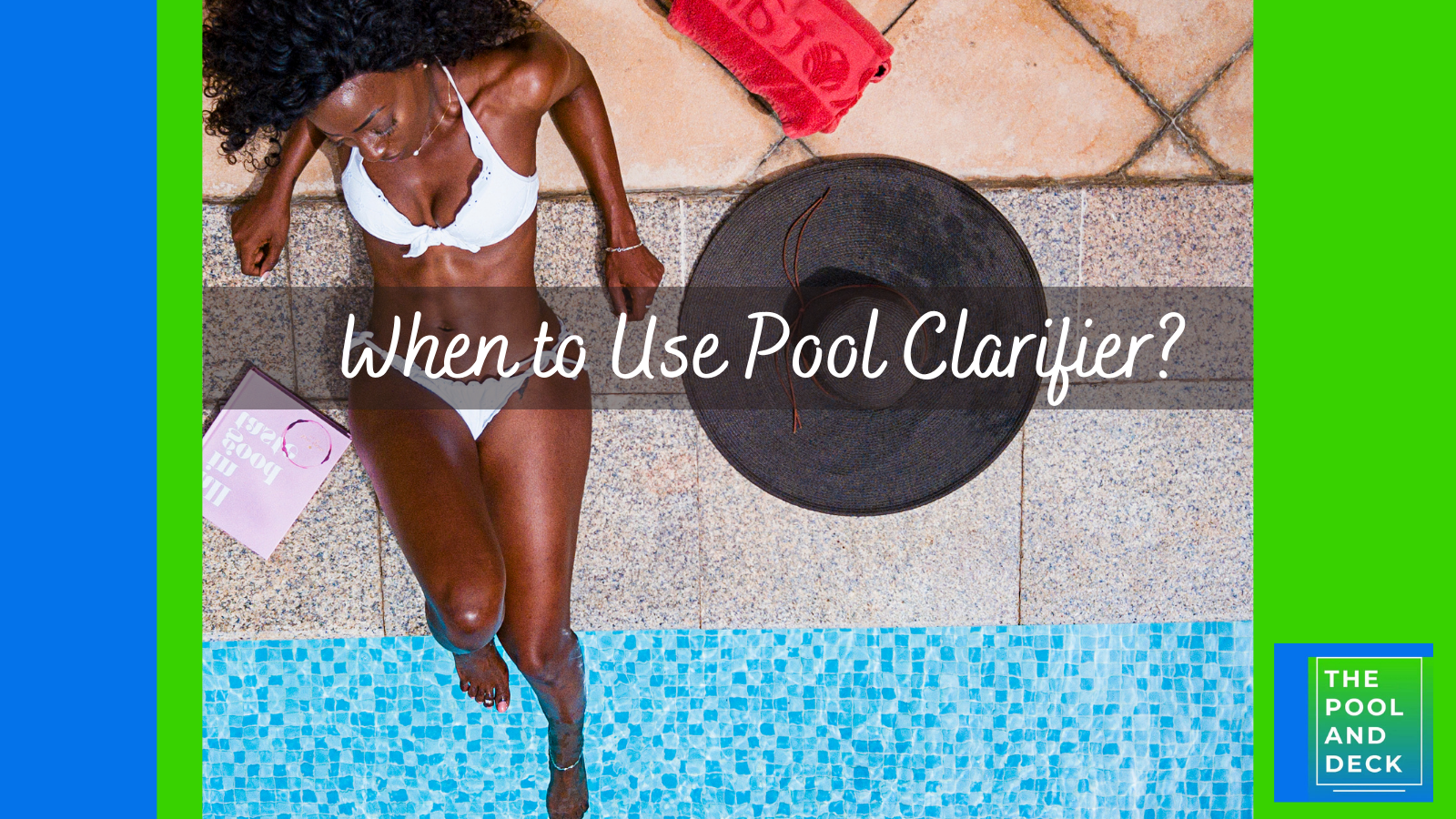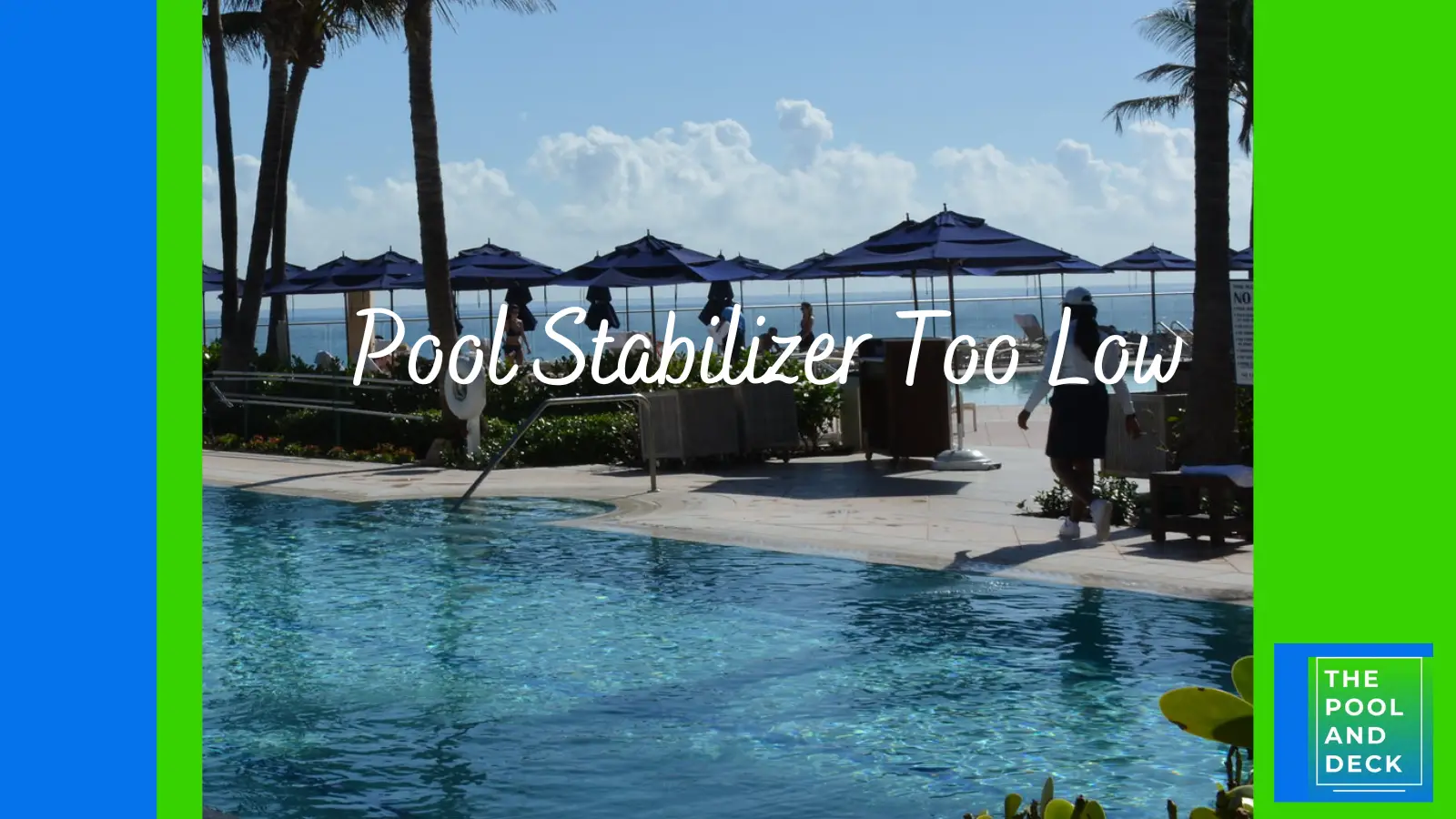Best Free Liquid Chlorine Shock Calculator for 2024!
thepoolanddeck.com is a participant in the Amazon Services LLC Associates Program, an affiliate advertising program designed to provide a means for sites to earn advertising fees by advertising and linking to Amazon.com . The website is also an affiliate of a few other brands. The affiliate links never increase your purchase price. We do appreciate your support. Thank you very much!
I hope that you will be happy to use my Best Free Liquid Chlorine Shock Calculator for 2024!
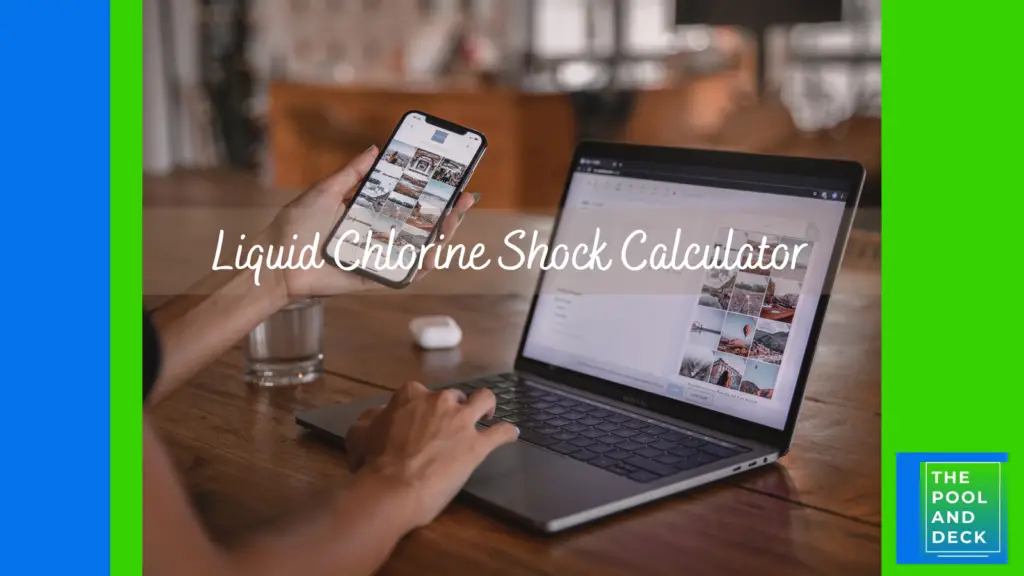
Table of Contents
What is Liquid Chlorine?
Liquid chlorine is in fact a more concentrated version of the household bleach. The active chlorine in bleach is typically 6% while that in liquid chlorine for pools is 10 – 12.5%.
The chemical name of liquid chlorine is sodium hypochlorite. It is sold as a liquid and hence the commonly used name is liquid chlorine. It is added directly to the pool water to raise the chlorine levels and kill bacteria and algae.
Liquid Chlorine Shock Calculator
Liquid Chlorine is very useful as a regular pool sanitizer, especially if the Cyanuric Acid (CYA) levels in your pool are high. Liquid Chlorine is not that convenient as a pool shock as the Available Chlorine Percentage (ACP) is only 12.5%.
Nonetheless, if you do want to use Liquid Chlorine as Shock you can use the Liquid Chlorine Shock Dose Calculator below to spike up the Free Chlorine to the Target (ppm). Please input the following:
- Existing Free Chlorine (FC) in ppm
- Target Free Chlorine (FC) in ppm. For effective super-chlorination keep this between 10-20 ppm.
- Pool Volume (in Gallons)
- Available Chlorine Percentage (ACP) – This is 12.5%. You can use a weaker chlorine such as Household Bleach (6%) but you will need to use very high volumes which is not practical.
Clicking the “Calculate” button will give you the Liquid Chlorine Shock Dose (Gal).
Liquid Chlorine Shock Dose Calculator
Do you need access to all my Pool Chemical Calculators? Just click the button below:
Recommended Pool Shock Products
There are several shock products available in the market. Here are the three that I recommend.
Cyanuric Acid Free Shock (Cal Hypo) – Powder
HTH 52037 Pool Care Shock Advanced
A fast-dissolving, convenient 4-in-1 Cal Hypo formula that kills bacteria & algae, reduces chlorine odor & irritation, and quickly restores crystal clarity.
Cyanuric Acid Free Shock (Liquid Chlorine) – Liquid
Commercial Grade pool shock. Liquid Chlorine / Chlorinator (12.5% Sodium Hypochlorite). Easy-to-use, fast, and effective. Shock and sanitize your pool by pouring this liquid shock directly into your swimming pool.
Calcium Free Shock (Di-Chlor)
Doheny’s Chlorine Di-Chlor Shock
Calcium-Free Chlorine Shock. Leaves behind no residue/clouds. Great for salt- and liquid-chlorine-based pools
Pros & Cons of Powder vs Liquid Shock
If you are looking for a Cyanuric Acid (CYA) Free shock then the choice usually boils down to Cal-Hypo Granular Shock or Liquid Chlorine Shock.
Here are some of the pros & cons of powder & liquid shock:
Pros of Powder Shock:
- Higher %age of Active Chlorine as compared to liquid shock
- More cost-effective and affordable
- Easy to buy, can be ordered online
- Easy to store as takes up less space
- Can be stored for longer periods of time
- Dichlor does not alter pool pH
Cons of Powder Shock:
- Must be pre-dissolved in water for best dissipation
- Cal Hypo increases pH, total alkalinity and calcium hardness
- Dichlor increases cyanuric acid level in pool
Pros of Liquid Shock:
- Easy to use as can be poured directly into the pool
- Does not leave any residue
- Will not increase calcium hardness or cyanuric acid level
Cons of Liquid Shock:
- More expensive than powder shock
- Can not buy liquid chlorine online
- Has a short shelf life of just 4 – 6 weeks
- Deteriorates if exposed to heat or sunlight
- Will increase pool pH substantially
- Will increase total dissolved solids in the pool
- Must be careful during application as it is basically concentrated bleach
Thank you very much for reading the post. I do hope you found it informative and helpful.




